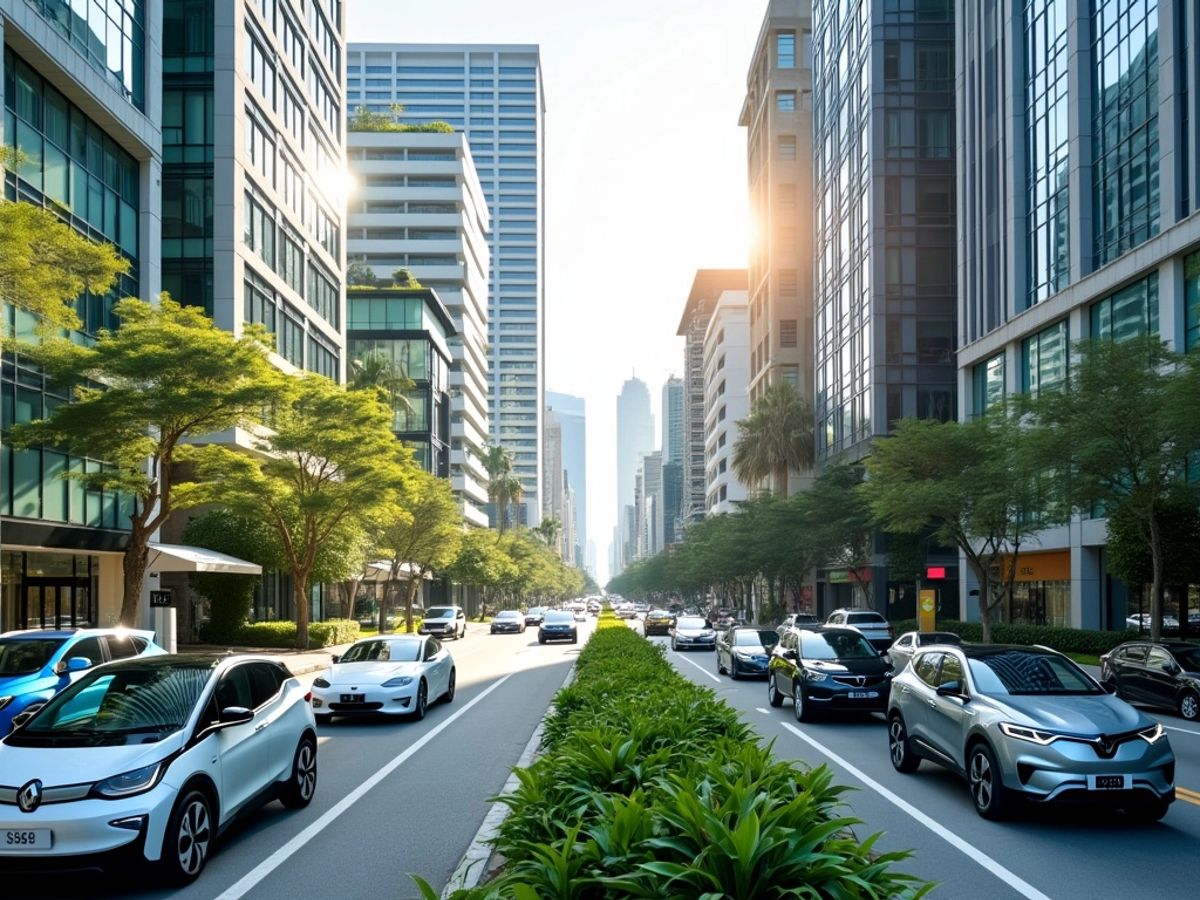Thailand is on the brink of becoming Southeast Asia’s leading hub for electric vehicle (EV) manufacturing, driven by ambitious government policies and significant foreign investments. This transformation is expected to create a commercial real estate market worth $6.5 billion by 2030, reshaping the landscape of the country’s industrial economy.
Key Takeaways
- Thailand aims for 30% of all vehicles produced to be electric by 2030.
- The government’s 30@30 policy includes substantial subsidies and tax incentives.
- A cumulative investment of $1.8 billion has already been attracted to the EV sector.
- The country needs to produce over 34 GWh of batteries domestically to meet its targets.
- Significant growth is anticipated in sectors connected to the EV ecosystem, including software and battery technology.
Thailand’s Ambitious 30@30 Policy
The Thai government has launched the 30@30 initiative, which aims for electric vehicles to constitute 30% of total car production by 2030. This policy is designed to stimulate demand for commercial real estate that supports the EV industry. Key components of the initiative include:
- Subsidies: Financial support for manufacturers transitioning to electric vehicle production.
- Tax Cuts: Incentives to lower the financial burden on companies investing in EV technology.
- EV 3.5 Incentive Package: A comprehensive plan covering the years 2024-2027 to further encourage investment.
Foreign Investments Fueling Growth
As of 2024, Thailand has attracted a diverse range of investments in the EV sector, totaling approximately $1.8 billion. Notable contributions include:
- $1.4 billion from Chinese manufacturers, including BYD Company Limited.
- $4.4 billion from Japanese automakers, enhancing the country’s manufacturing capabilities.
These investments are crucial for meeting the ambitious production targets set by the government.
The Need for Manufacturing Space
To achieve the 30@30 goal, Thailand will need to produce over 34 GWh of batteries domestically. This necessitates the development of significant new manufacturing and industrial spaces. As of the end of 2023, there were approximately 167,000 EVs in Thailand, representing 26.4% of the target of 440,000 EVs by 2030.
Research and Development Initiatives
Research and development (R&D) is vital for maintaining Thailand’s competitive edge in the EV industry. The government is actively promoting R&D through:
- Subsidies and Tax Breaks: For automakers establishing R&D centers in the country.
- Major Players: Companies like Hyundai and CATARC have already set up R&D facilities, while BYD has opened a parts warehouse in Bangkok.
- Tesla’s Expansion: The establishment of a comprehensive service center and parts warehouse further solidifies Thailand’s position in the EV market.
Future Growth Prospects
JLL predicts significant growth across all sectors connected to the broader EV ecosystem, including:
- Software and AI Integration
- Battery Technology
- Tyres and Rubber
The influx of foreign investment highlights Thailand’s competitive edge in the rapidly growing EV sector. The combination of government incentives, a skilled workforce, and existing infrastructure makes Thailand an attractive destination for both new and experienced EV manufacturers. However, continued investment in manufacturing, R&D, and real estate will be crucial for achieving Thailand’s EV ambitions and ensuring the sustainability of its industrial economy for decades to come.




